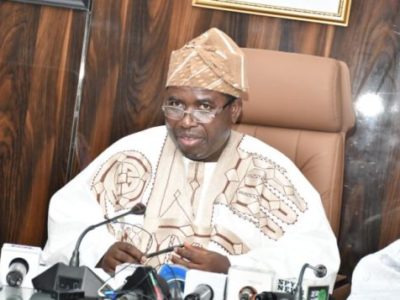Matters eRising with Olusegun Oruame
The new Managing Director/CEO, Nigeria Communications Satellite (NIGCOMSAT) Limited, Jane Egerton-Idehen, appears very determined to drive changes in the company she has been assigned to manage; perhaps, more appropriately to rework.
RELATED: NIGCOMSAT relaunches under new CEO; anchors future on infrastructure upgrade, improved services
Egerton-Idehen comes with very strong credential to set a new direction for the high-potential but sadly, moribund company. Whatever happens hereafter to NIGCOMSAT will either bolster Egerton-Idehen’s very laudable credential or harm it. That is the summary of her new task.
You want to know how or why? But first, here’s a caveat. Do not envy Egerton-Idehen. She has been asked to bring a sick enterprise back to life; alter the narrative for a NIGCOMSAT many critics rightly or wrongly regard as white elephant; and even more frighteningly; dive into the abyss of nearly two decades in which NIGCOMSAT has earned a distasteful reputation of being a nest of corruption and mismanagement.
If NIGCOMSAT had come to existence via private investment, the investors would have by now; make do with a postscript detailing the exercise as a scary nightmare that truly happened as a real-life corporate disaster.
Egerton-Idehen will have to decide whether it would be worth it to focus on NIGCOMSAT’s skewed past or simply on its future under her leading; or whether to create a balance for the past to better manage the present and the future without getting unwholesomely distracted.
NIGCOMSAT of petitions and probes
NIGCOMSAT’s continuous past is a mix of petitions “over gross financial misappropriation” by several groups/petitioners and forensic probes of its activities by the House of Representatives.
At the heart of all of these is that the new CEO has a monster-challenge to address in order to build NIGCOMSAT into a functional, communication satellite company.
Where will she start from? Okay. She has already started.
Not a few a few ‘cynics’ had predicted that NIGCOMSAT was doomed from start. Initiated by President Olusegun Obasanjo to help close the communication connectivity infrastructure gap, and nurtured to enhance our sense of national pride, NIGCOMSAT has become an awry satellite misadventure.
If NIGCOMSAT had come to existence via private investment, the investors would have by now; make do with a postscript detailing the exercise as a scary nightmare that truly happened as a real-life corporate disaster.
And yet, NIGCOMSAT is a microcosm of Nigeria. It is not a unique case of how a public enterprise has been steadily stripped of all its set goals to kowtow on its own fallen dreams.
NIGCOMSAT’s is a similar fate that has befallen many government institutions originally designed to be government enterprises that do not depend on subventions in the realm of Self-funding Organisations (SFOs). All of which, of course, ended up as enterprises perpetually stuck on government feeding-bottle.
Judging from where she is coming from, some of the posers Egerton-Idehen will be wanting to address is whether NIGCOMSAT, at any one year of its existence since incorporation, has been profitable?
Spending more than it is earning
As one report puts it in a study of Nigeria’s budgets from 2009 to 2020, about N43.5 billion has been allocated to NIGCOMSAT. To further go by figures from the office of the accountant-general, between 2011 and 2017, NIGCOMSAT received N13.3 billion for capital expenditures, out of which it spent N12.6 billion.
Its 2009 wage bill was N747 million but jumped to N2.6 billion in less than a decade. As at 2016, NIGCOMSAT had 397 employees with a personnel cost of N2.3 billion meaning that the Federal Government paid NIGCOMSAT workers an average of N5.8 million per annum (or N480,000 a month).
The dilemma gets even more worrying as another 2016 report demonstrated that NIGCOMSAT generated only N584 million in revenue between 2011 and 2014 meaning that in four years, NIGCOMSAT revenue accounted for only three per cent of its expenses on salaries and capital projects during the same period which was N19 billion.
[NIGCOMSAT] is not good or bad business. It is Tragedy and one that defines the Nigerian state as an enterprise.
The aches are not over. The Nigerian government has been shackled with servicing the Chinese loans to finance Nigeria’s satellite dream including about $51 million from the Nigerian government’s purse and a $200 million loan from China’s Exim Bank. According to the Debt Management Office (DMO), “between 2011 and 2014, debt service payments for NIGCOMSAT amounted to $127 million, and between 2015 and 2017, the amount left to be paid for the project dropped from $50 million to $10 million.”
This is not good or bad business. It is Tragedy and one that defines the Nigerian state as an enterprise.
What exactly are Egerton-Idehen’s next moves to navigate or rework this script of an enterprise that has collected so much from the Nigerian people in terms of massive investment and allocations; don’t forget the salaries – and yet, “have absolutely nothing to show for it”, to quote one angry Senate member.
Recruiting Egerton-Idehen as CEO would imply that government is tinkering with injecting life into NIGCOMSAT even before deciding to commercialize or privatize it as already inked in past memos.
But will Egerton-Idehen deliver? The months ahead will decide.





























